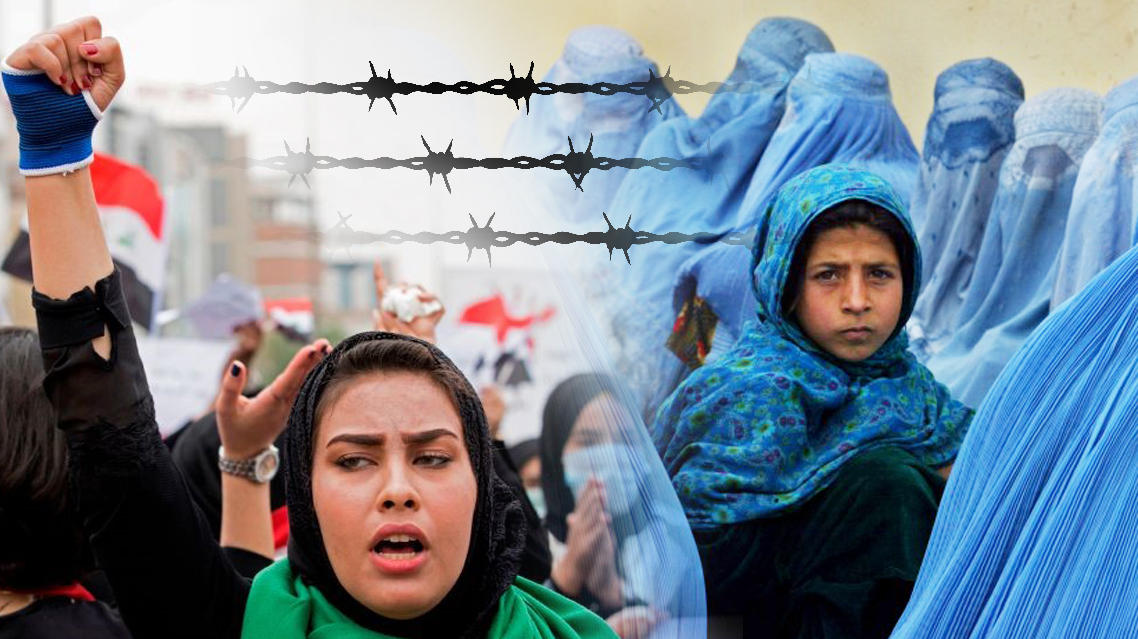
The extent of female service members' involvement in Operation Enduring Freedom (OEF) and Operation Iraqi Freedom (OIF), in terms of both the number of women deployed and the scope of their involvement, is unprecedented. While many of the mental health readjustment issues of female service members are likely to mirror those of the majority male Veteran population, this newest generation of women Veterans may also face unique threats to their mental health. The goal of this review it to highlight emerging issues relevant to the development of posttraumatic stress disorder (PTSD) among women deployed to Iraq and Afghanistan by reviewing the existing literature on gender-relevant issues among this cohort, as well as raising theoretically important issues that are worthy of further empirical investigation. Topics addressed include gender differences in combat experiences and in PTSD following combat exposure; sexual assault, sexual harassment and other interpersonal stressors experienced during deployment; women Veterans' experiences of premilitary trauma exposure; and unique stressors faced by women Veterans during the homecoming readjustment period. Given that most models of the impact of war zone deployment on PTSD are predicated on the experiences of male service members, women's expanding role in combat operations presents both an opportunity and a challenge to adapt these models to more effectively capture the experiences of female service members.
Section snippets
Combat experiences in Iraq and Afghanistan
Deployment in support of OEF/OIF can involve exposure to a range of potentially stressful or traumatic experiences, including stressors specific to being in a war zone, difficulties related to being separated from loved ones, and interpersonal stressors associated with living and working in close proximity with other troops. Although research interest in these latter two stressor categories has grown over the past decade, most of the deployment health research to date has focused on
Sexual assault and sexual harassment
While traumatic combat experiences are most closely associated with service in OEF/OIF, they are certainly not the only potentially traumatic experiences that women may encounter in the war zone. Unfortunately, deployed women may also be exposed to interpersonal stressors during deployment, including experiences of sexual assault, sexual harassment and gender-based harassment. While these interpersonal stressors do impact male service members as well, female gender confers a higher risk of
Exposure to other interpersonal stressors
Female military personnel are also at increased risk of experiencing gender harassment, behaviors that are not sexually-based, but are hostile or degrading and occur on the basis of one's biological sex. Gender harassment is often used to reinforce traditional gender roles and includes behaviors such as putting someone down based on their gender, making offensive remarks about a particular gender or treating members of one gender as if they must work harder than others to prove themselves.
The role of premilitary and postmilitary interpersonal trauma
Research with military populations has demonstrated that the experience of multiple traumatic events across the lifespan can have a cumulative or ‘additive’ negative impact on Veterans' postdeployment adjustment and well-being (Bremner et al., 1993, Green et al., 1990, Zinzow et al., 2007b). Further, experiences of trauma exposure prior to military service are predictive of Veterans' future exposure to potentially traumatic events during and after military service (Himmelfarb et al., 2006,
Homecoming readjustment
Veterans' homecoming readjustment experiences may play an important role in their postdeployment well-being. Experiences related to readjustment to the family primary caregiver role, public and personal perceptions of the “Veteran woman” identity, and access to postdeployment healthcare services may be especially salient for women returning from deployment. While little research has examined the impact of these factors on OEF/OIF Veteran women's postdeployment adjustment, the studies that are
Future directions: Where do we go from here?
This review of the literature on factors that may impact post-deployment mental health adjustment among women serving in war zones in Iraq and Afghanistan highlights a number of areas in need of further investigation. Across almost all topic areas addressed by this review, due in part to the fact that these wars are still ongoing, there is a need for additional studies that include larger subsamples of women in order to allow for sufficient power to analyze gender differences. For example, we
Conclusion
Understanding gender-specific issues in the post-deployment mental health readjustment of service members who have served in Iraq and Afghanistan has broad potential relevance, as this literature may shed light on the larger question of gender differences in the diagnosis and treatment of PTSD. Results based on the broader literature indicate that women are approximately twice as likely as their male counterparts to be diagnosed with PTSD (Tolin & Foa, 2006). However, there are also indications
Acknowledgements
This research was supported, in part, by a Department of Veterans Affairs Health Sciences Research and Development Service grant (DHI 06-225-2; Stigma, Gender, and Other Barriers to VHA Use for OEF/OIF Veterans).